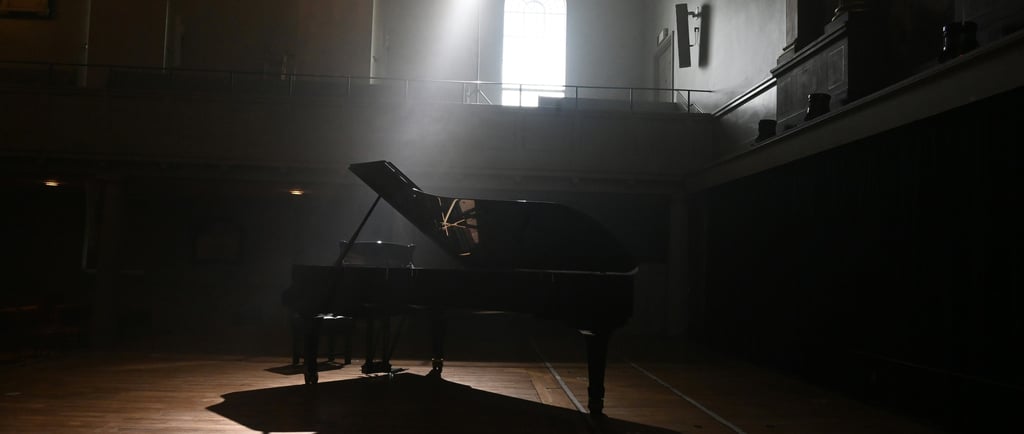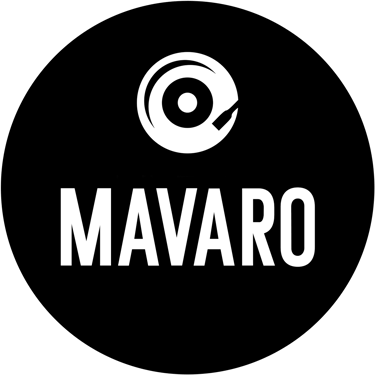How to Find & Hire the Right Film Composer for Your Indie Film
Looking to hire a film composer? Discover how to find the right one for your indie film — including where to look, what to ask, and how to avoid copyright issues.


Finding the right composer for your film can feel daunting — especially if it’s your first time dealing with original music. But the truth is: you don’t need a massive budget or to be in Hollywood to get the soundtrack your film deserves.
This guide will help you understand how to approach the process, where to find the right person, and what to look out for. If you’re looking to hire a film composer — whether you're seeking original music for films or a unique film score that ensures festival compliance — you're in the right place to understand how to find someone who truly gets your vision.
1. First: do you need original music?
Let’s start with the big question. Do you actually need original music for your film?
If your film is for festivals or public release, the answer is almost always yes.
Royalty-free libraries are great for temporary cuts or very small projects. But they come with big limitations: you’re licensing a track designed to work “pretty well” for many different uses — not “perfectly” for your specific story. These tracks also aren’t exclusive. You risk hearing the same piece of music on someone else’s video, which can undercut the emotional impact of your film.
Also, with library music it’s difficult to put together a score that feels cohesive for the entire length of your project — even if it’s just a short. Imagine with a feature film!
If you want a truly professional experience, tailored emotions, a bespoke film score that elevates your story, and music that becomes an indelible part of your film's identity — nothing beats original music composition.
2. What kind of composer do you need?
Not all composers are the same. Some specialize in big orchestral drama. Others in intimate, atmospheric textures. Some love thrillers and dark psychology; others work on light comedy or animation.
Before you start reaching out, ask yourself:
• What’s the emotional tone I want the music to have?
• What kind of musical world fits the story — acoustic? electronic? experimental?
• Do I need someone with experience in sound design and post production too?
• Do I need someone who understands tight deadlines and indie workflows?
If you’re not sure, that’s ok — a good composer will help you figure this out. But having a basic idea will make your search much more effective.
3. Where to find composers (and what to expect)
Now let’s get to the practical part. Here are some of the best real-world ways to find composers for your indie film — including pros and cons for each option.
• Personal network and recommendations
This is always the first (and best) route. Ask other directors, producers, editors, or sound designers you’ve worked with. If someone you trust had a great experience with a composer, you’re already halfway there. Plus, personal introductions make communication smoother from the start.
• Composer credits on films and TV you love
If a soundtrack really moved you, look up who composed it. Working with an established composer guarantees high-quality, professional delivery and a stylistic match. But be warned: this is often the most expensive option, and generally suited to higher-budget projects. If you’re working with indie budgets, keep reading — there’s a lot of untapped talent out there, often specializing in indie productions, like myself, who can deliver high-quality original film scores without a Hollywood price tag.
• Film schools and music conservatories
This is actually where I started — I studied piano and music composition at the Conservatory in my city during middle and high school. Conservatories are full of talent and passion. That said, students aren’t always trained in real-world film scoring. Even in dedicated film scoring programs, many lack experience working with deadlines, budget constraints, and narrative pacing. In my case, it took me a few years after studying to really learn what working on films requires.
Still, these institutions can be a great place to meet young, motivated composers — especially if you’re looking to build long-term creative partnerships.
• Online platforms (SoundBetter, Upwork, Fiverr, etc.)
I’ve personally worked on a few film projects through these platforms — and they actually gave me my first international film scoring opportunities. So yes, they work!
But there are also downsides: platforms are crowded, it’s hard to know who’s actually good (reviews can be misleading), and there’s often a push for fast delivery at the expense of artistic depth. Also, platform fees can add up. Use them with care — and always check their website or portfolio before hiring them.
• Composer websites and portfolios
This is where you can really assess a composer’s personality, taste, and professionalism. You’re reading this article on my own portfolio website, for example — where I publish my film scores and re-scoring work. This is exactly why professional film composers maintain a dedicated online portfolio, like the one you're on now, showcasing their unique voice and professional approach to film music composition services. Most professional composers have a selection of curated clips, demo reels, and past projects. Take time to explore their sound and ask yourself: does this person get the kind of story I’m telling?
• Social media and hashtags
Instagram and YouTube in particular are great places to discover talent. Many composers (myself included) publish re-scores or original film music content on their profiles. Try searching hashtags like #filmscore, #originalmusicforfilm, #rescoringchallenge, #cuetube or even something specific to your genre like #thrillerscore or #documentarymusic.
If someone’s music grabs your attention, don’t hesitate to reach out. Composers are often happy to chat about upcoming projects — even if you’re still in development.
4. What to ask when you’ve found someone
Once you’ve found a composer who seems like a good fit, it’s time to talk. Don’t worry if you don’t speak “music” — a good composer will help you communicate with emotional language, story references, or visual cues.
Here are a few helpful questions to ask:
• Are you available during [your production timeline]?
• Can I hear samples of work in a similar genre?
• What’s your process like for working with indie filmmakers?
• What do you need from me to get started?
5. Final tip: look for a collaborator, not just a service
The best scores don’t happen through back-and-forth emails and vague requests. They happen when you and your composer work together — brainstorming moods, refining ideas, pushing each other to get to the emotional heart of the story.
So don’t just look for a freelancer. Look for a partner. Someone you can trust to handle one of the most emotionally powerful parts of your film.
Let’s talk
If you’re working on a short, a feature, or a documentary and you’re exploring options for music — I’d love to hear about it.
Even if it’s early stage. Even if you’re just looking around. Let’s chat and see if I might be the right composer for your story.
✉️ Contact me
Marco Valerio Romano
⸻
You might also like:
What Makes a Great Film Score?
How to Choose a Composer for Your Independent Film
How Much Does an Original Score for a Short Film Cost in 2025?
When Should You Hire a Composer for Your Film?
How Long Does It Take to Score a Film?
Can You Use That Music in Your Film? (Even If It’s Just a Cover or You Edited It)
How to Give the Composer Directions for Your Original Film Score
How to Export Files for the Composer and Audio Post-Production

